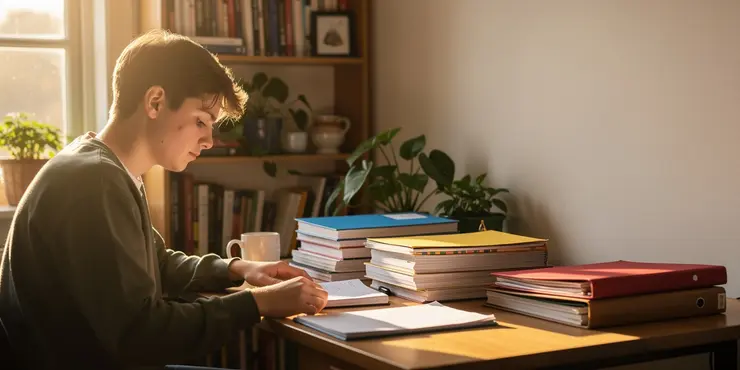
Find Help
More Items From Ergsy search
-
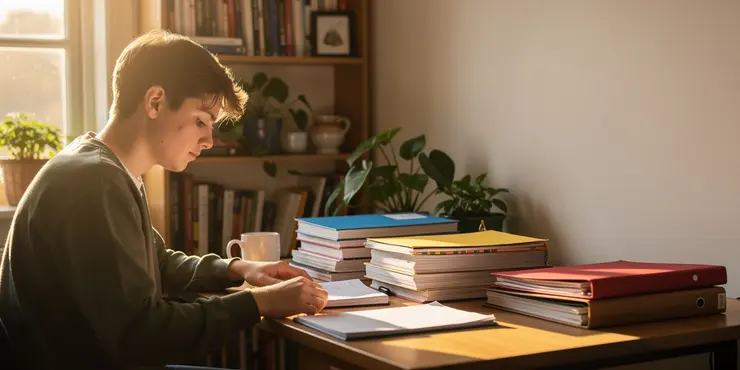
Is there a cure for ADHD?
Relevance: 100%
-
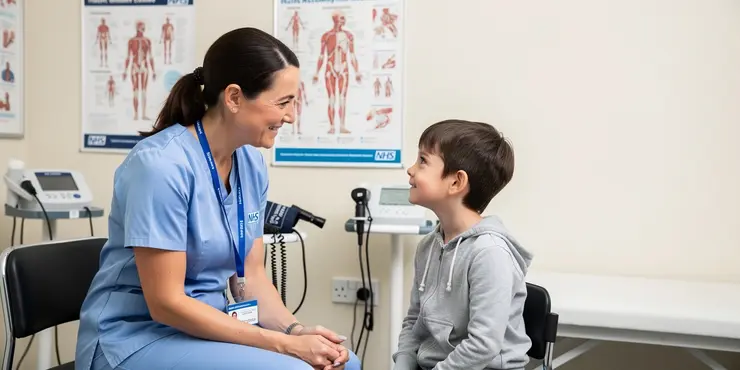
What is ADHD?
Relevance: 67%
-
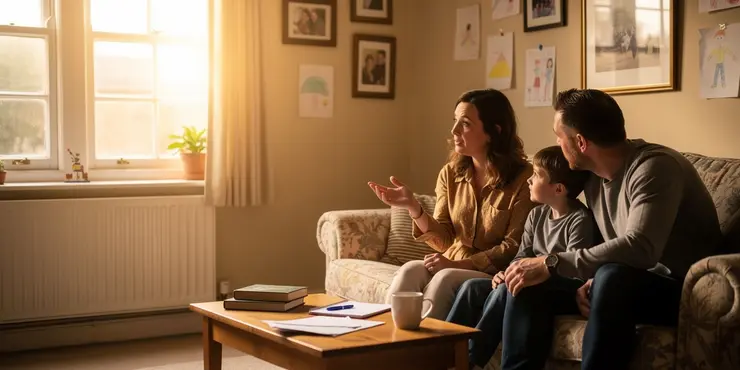
Can ADHD be inherited?
Relevance: 59%
-
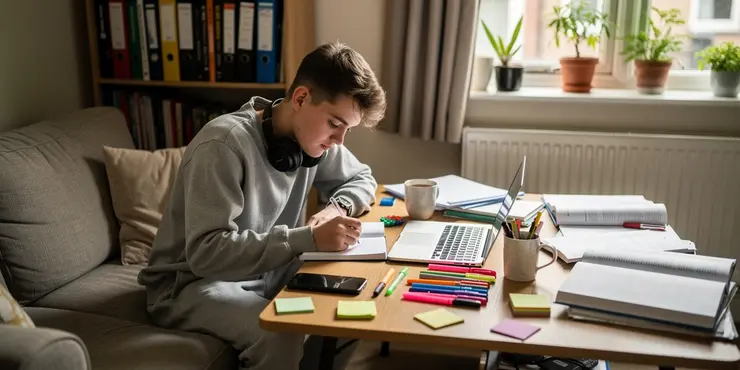
Are there different types of ADHD?
Relevance: 59%
-
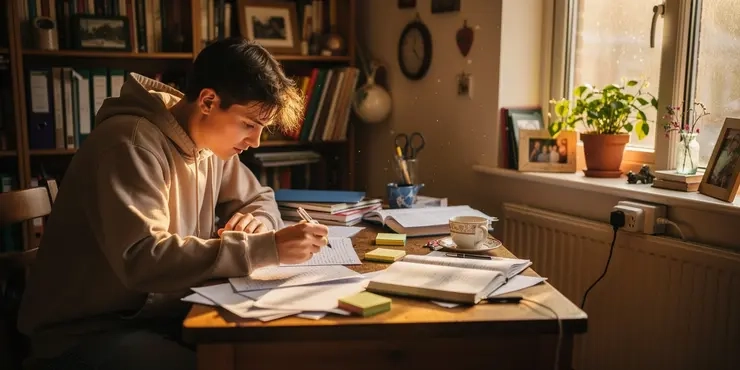
Attention deficit hyperactivity disorder (ADHD) - Living with ADHD
Relevance: 56%
-
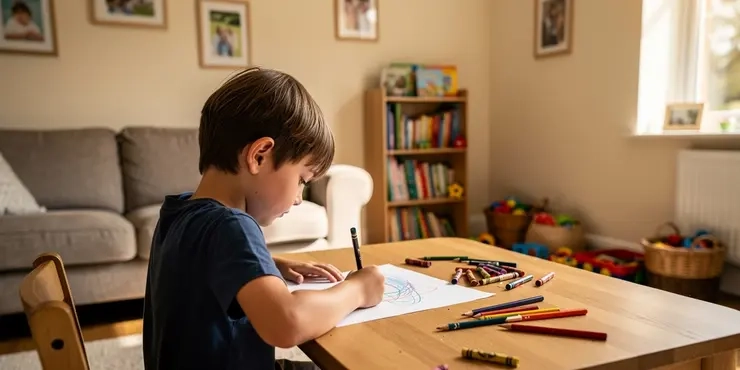
Attention deficit hyperactivity disorder (ADHD) - Introduction
Relevance: 55%
-
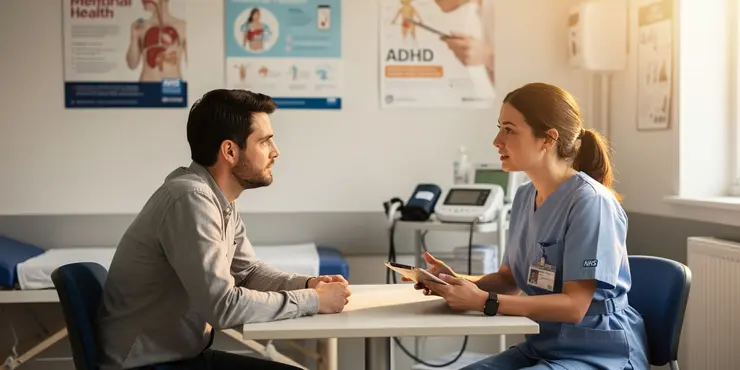
What causes ADHD?
Relevance: 55%
-
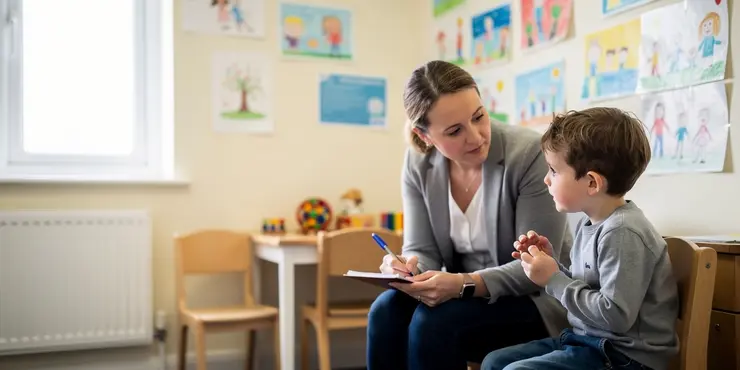
What role does the environment play in ADHD?
Relevance: 54%
-
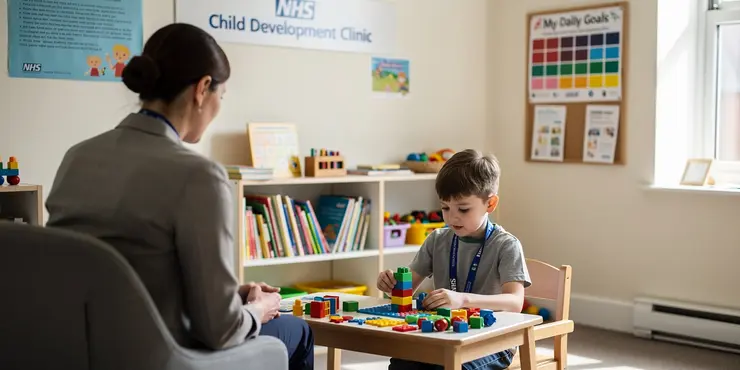
How is ADHD diagnosed?
Relevance: 54%
-
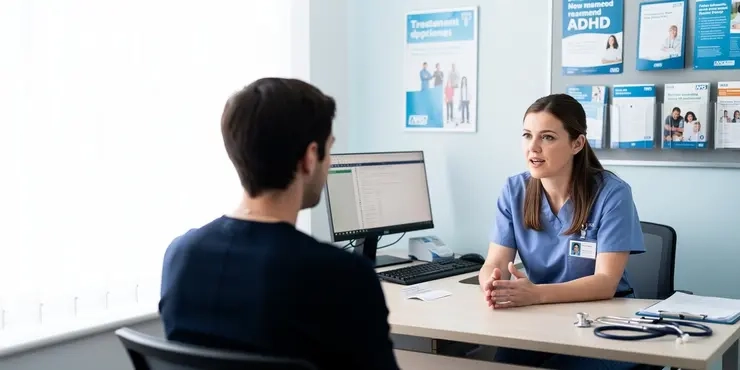
Attention deficit hyperactivity disorder (ADHD) - Treatment
Relevance: 53%
-
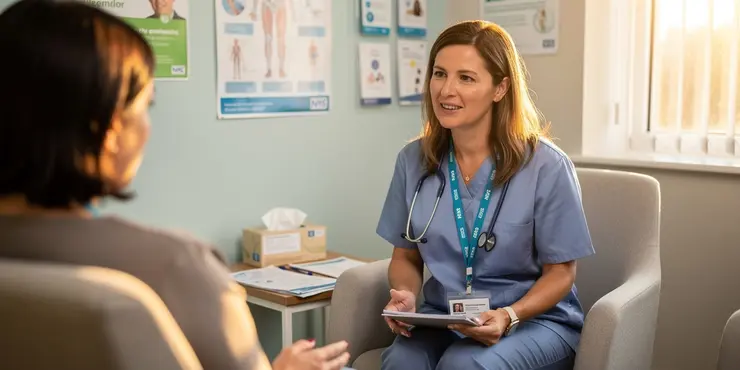
Can adults have ADHD?
Relevance: 53%
-
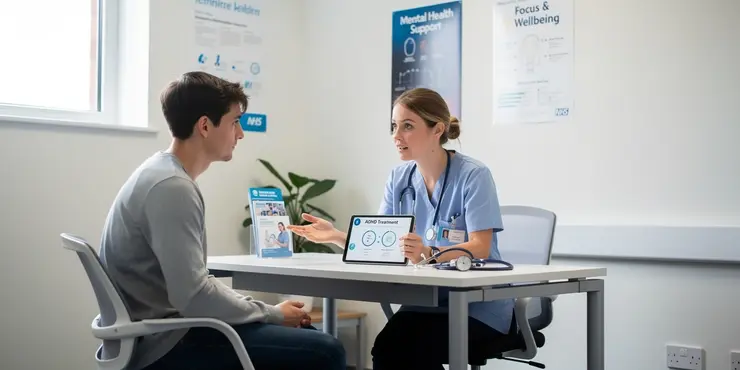
What are common treatments for ADHD?
Relevance: 52%
-

What are the main symptoms of ADHD?
Relevance: 52%
-

Is ADHD more common in boys or girls?
Relevance: 51%
-
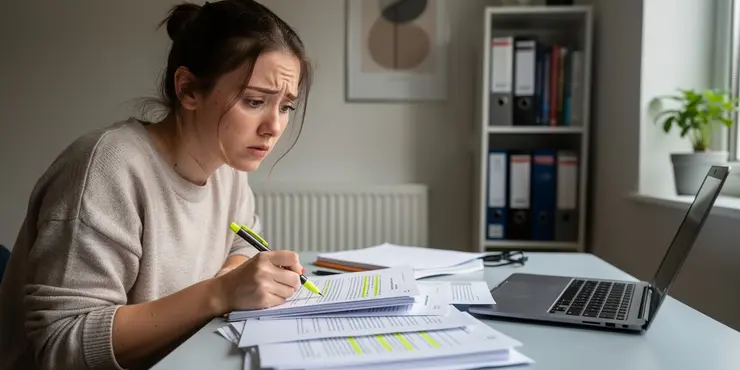
Are there any risks associated with untreated ADHD?
Relevance: 51%
-
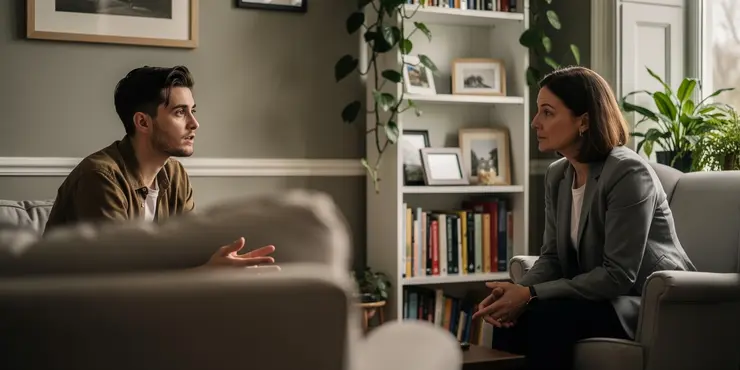
Can therapy help individuals with ADHD?
Relevance: 51%
-

Can diet affect ADHD symptoms?
Relevance: 51%
-
How can I get tested for ADHD?
Relevance: 50%
-
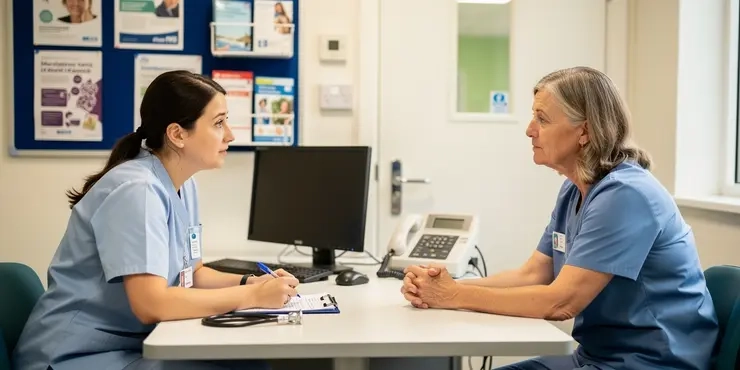
Attention deficit hyperactivity disorder (ADHD) - Diagnosis
Relevance: 49%
-

Can lifestyle changes help manage ADHD?
Relevance: 49%
-
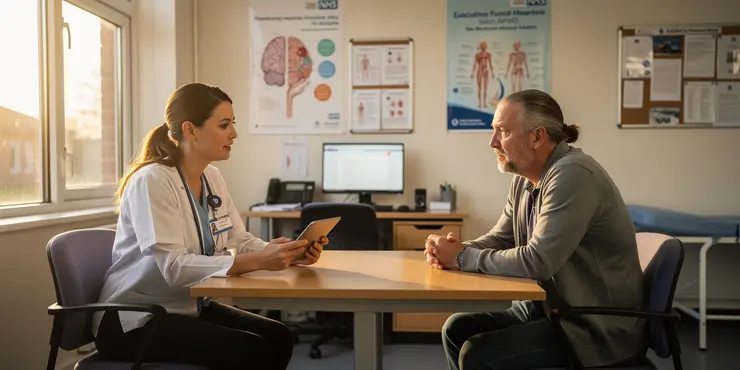
How does ADHD affect executive function?
Relevance: 49%
-
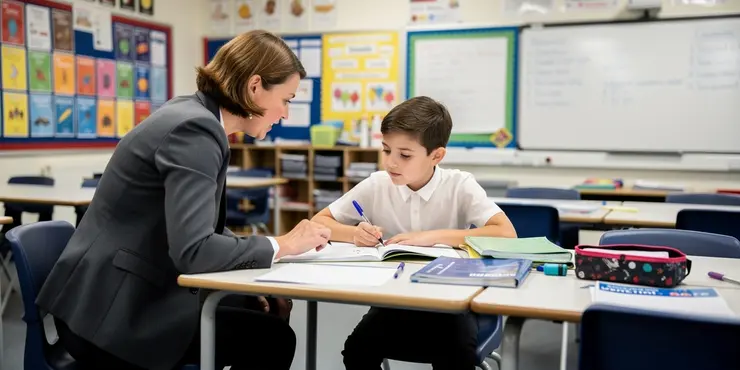
How can teachers support students with ADHD?
Relevance: 48%
-
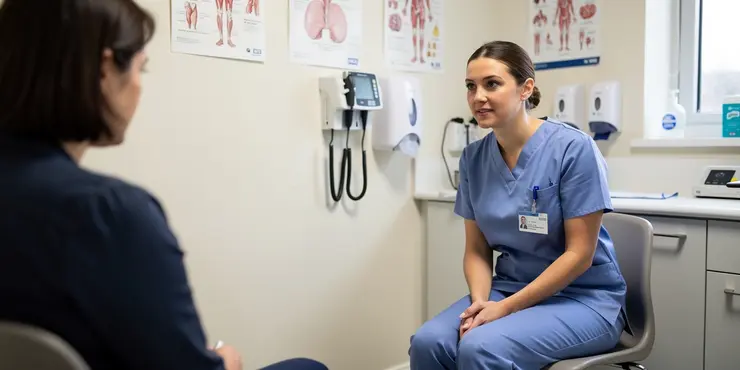
What is ADHD?
Relevance: 48%
-
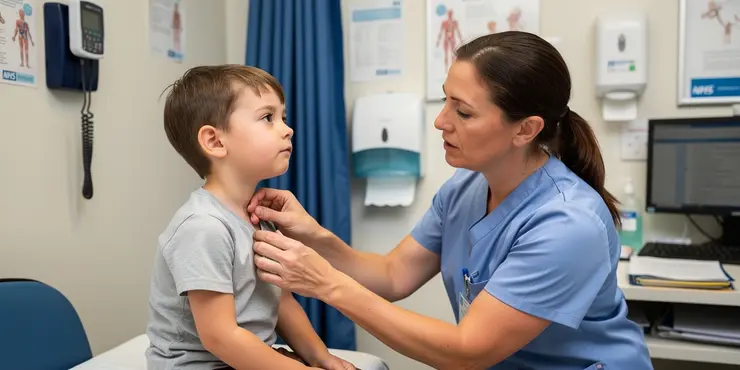
Is there a cure for eczema?
Relevance: 42%
-
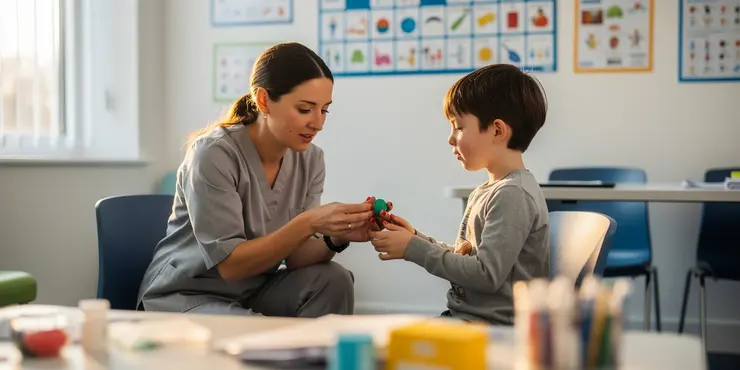
Can autism be cured?
Relevance: 41%
-
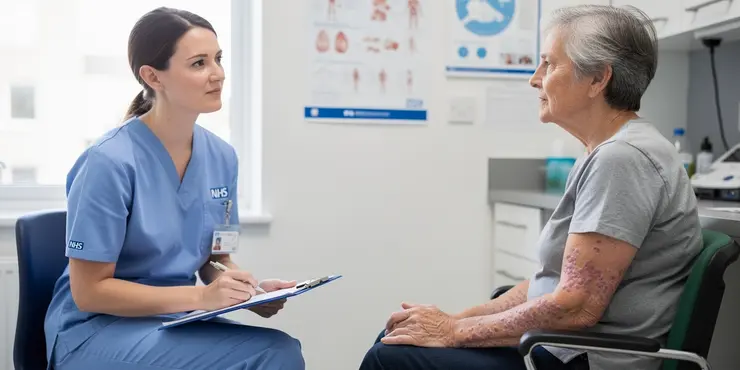
Is there a cure for psoriasis?
Relevance: 41%
-
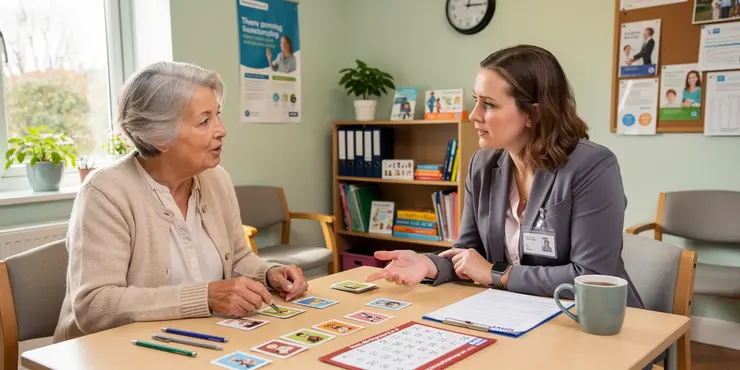
Is there a cure for dementia?
Relevance: 41%
-
Can tinnitus be cured?
Relevance: 40%
-
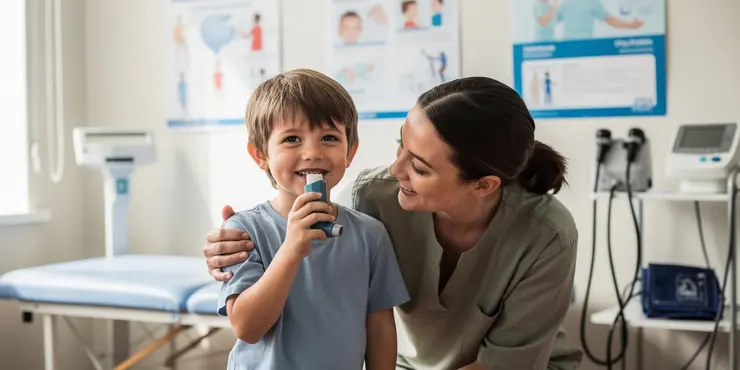
Can asthma be cured?
Relevance: 40%
-
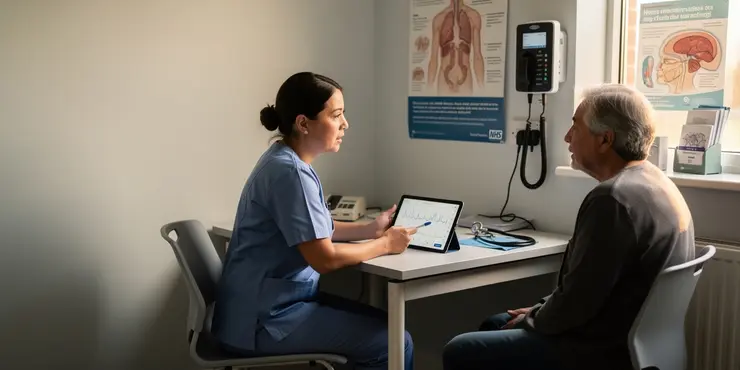
Can sleep apnea be cured?
Relevance: 40%
-
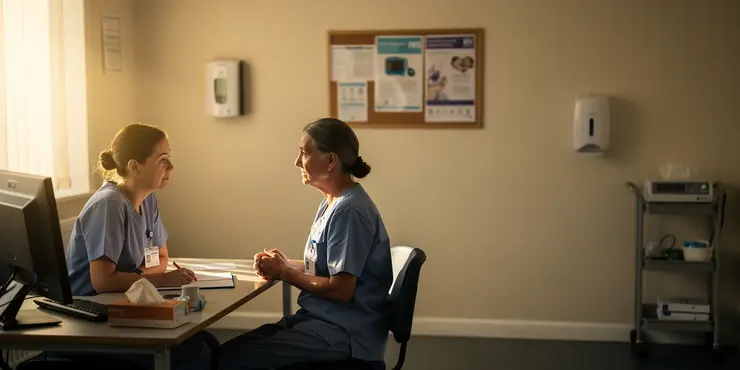
Can Huntington's disease be cured?
Relevance: 39%
-
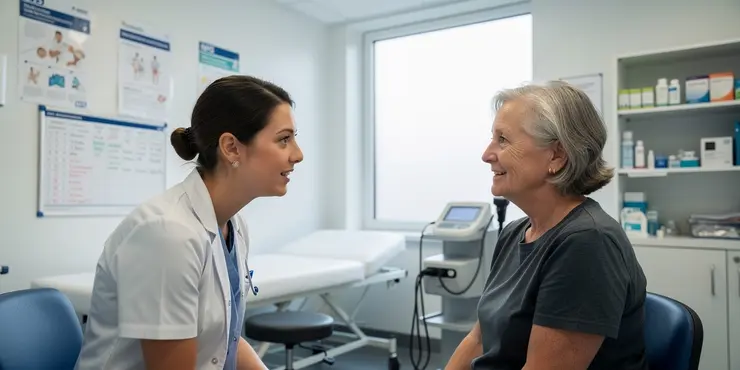
Is there a cure for Crohn's disease?
Relevance: 39%
-
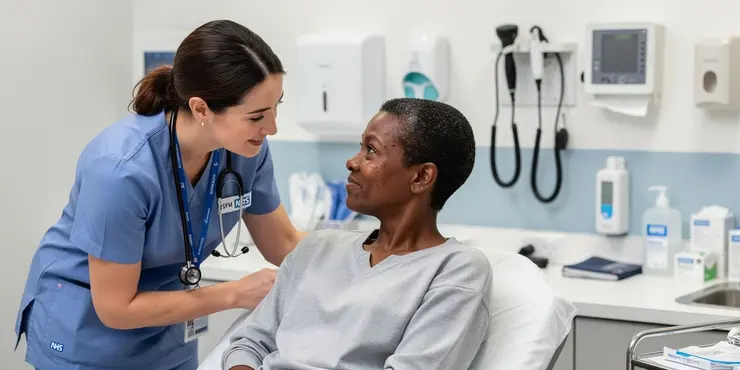
What is the principle of 'like cures like'?
Relevance: 38%
-
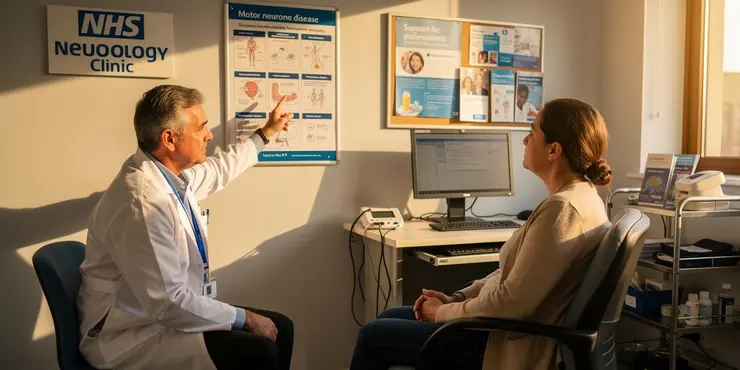
Is there a cure for motor neurone disease?
Relevance: 38%
-
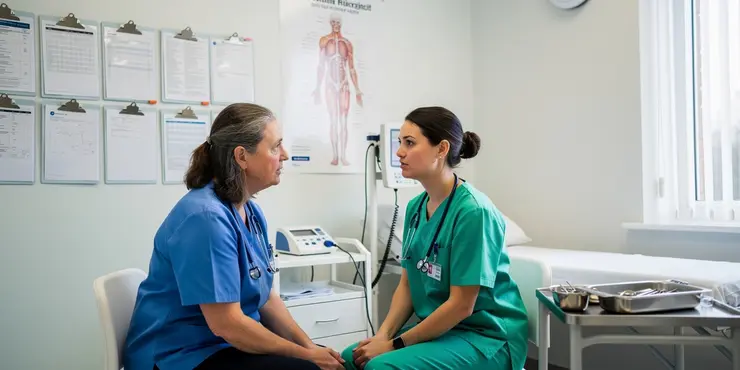
Is there a way to cure a cold quickly?
Relevance: 38%
-
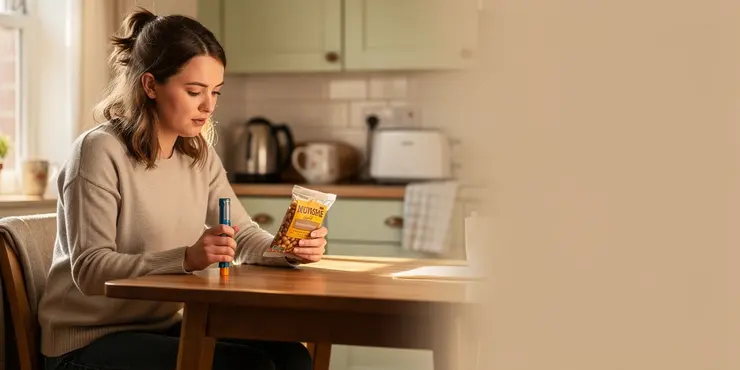
Is there a cure for nut allergies?
Relevance: 37%
-
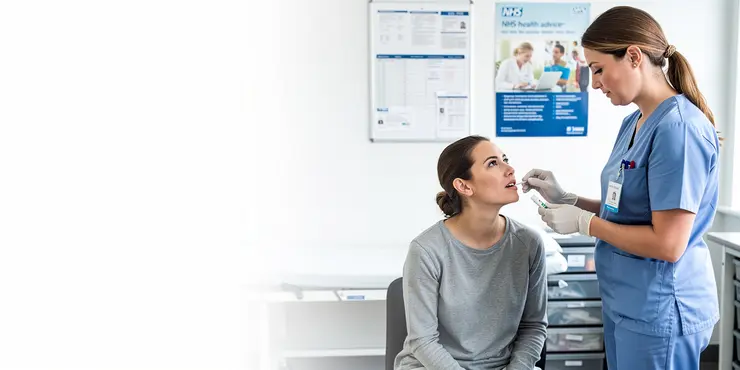
Is there a cure for cold sores?
Relevance: 37%
-
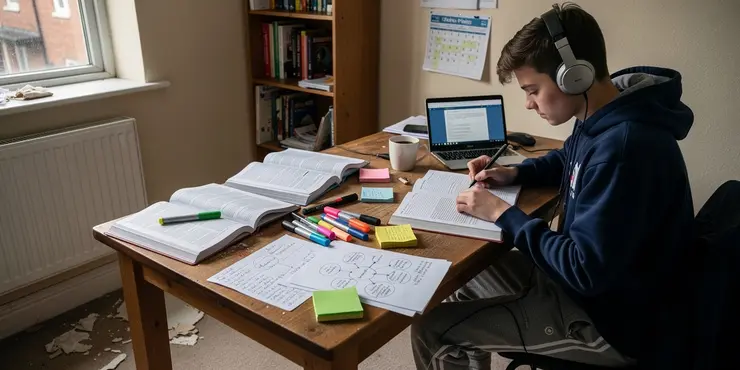
Can ADHD affect academic performance?
Relevance: 36%
-
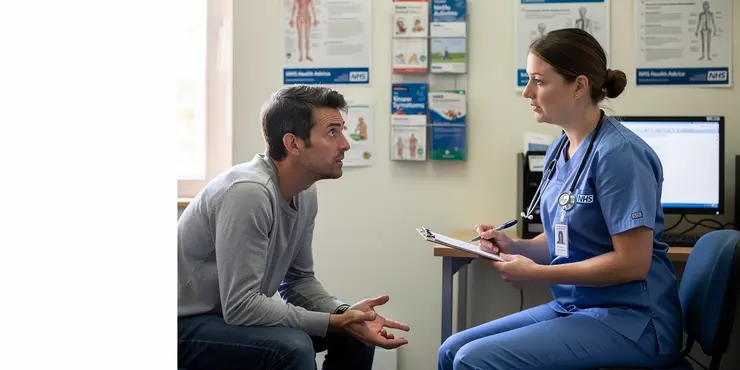
Is there a cure for Nipah Virus?
Relevance: 36%
-
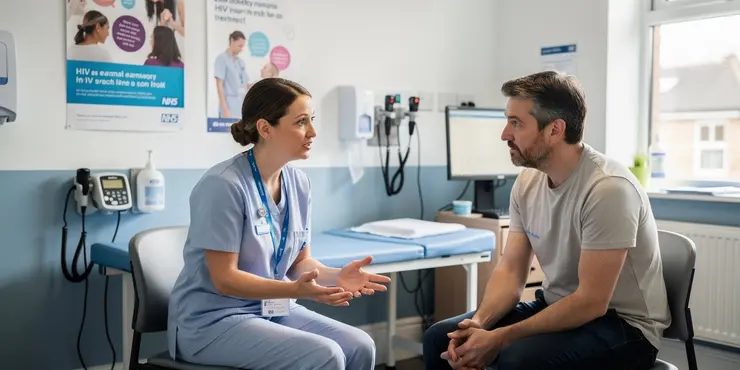
Can HIV be cured?
Relevance: 35%
Understanding ADHD
Attention Deficit Hyperactivity Disorder (ADHD) is a neurodevelopmental disorder that often emerges in childhood and can continue into adulthood. It is characterised by symptoms such as hyperactivity, impulsiveness, and difficulty maintaining attention. ADHD can impact a person’s social interactions, academic performance, and overall functioning. In the UK, it is estimated that around 3-4% of school-aged children and 2% of adults are affected by ADHD.
Is There a Cure for ADHD?
Currently, there is no known cure for ADHD. However, there are effective treatments available that can help manage symptoms and improve the quality of life for those affected by the disorder. Treatment typically involves a combination of medication, behavioural therapies, and educational interventions. Each individual's treatment plan may differ, depending on their specific needs and the severity of their symptoms.
Medication for ADHD
Medications are often prescribed to help control ADHD symptoms. The most commonly used medications are stimulants, such as methylphenidate and amphetamines, which help increase concentration and control impulsive behaviours. Non-stimulant medications, like atomoxetine, may also be used, particularly when stimulants are not effective or cause significant side effects. These medications do not cure ADHD but can significantly alleviate symptoms.
Behavioural and Therapeutic Interventions
Alongside medication, behavioural therapies play a crucial role in managing ADHD. Cognitive behavioural therapy (CBT) can help individuals develop better organisational skills, manage time effectively, and improve self-control. Family therapy and counselling may also be beneficial to address relationship dynamics and provide support for family members. Parenting programmes are available to help parents develop strategies to support their children with ADHD effectively.
Support and Resources
Support from educational institutions is vital for children with ADHD. Special educational needs (SEN) support, tailored learning strategies, and classroom accommodations can enhance learning outcomes for affected children. Adults with ADHD may benefit from coaching, career guidance, and support groups to help manage their symptoms in work and personal settings. Numerous charities and organisations in the UK provide resources and support for individuals with ADHD and their families, such as the ADHD Foundation and ADDISS.
Conclusion
While there is no cure for ADHD, various treatments and support systems can help individuals manage the disorder effectively. Continual research is being conducted to better understand ADHD and improve treatment options. If you suspect that you or someone you know may have ADHD, it is important to seek assessment and support from healthcare professionals.
What is ADHD?
ADHD stands for Attention Deficit Hyperactivity Disorder. It starts in childhood and can last into being grown-up. People with ADHD might be very active, do things without thinking, and have trouble paying attention. It can make school and making friends harder. In the UK, 3-4 out of every 100 school children and 2 out of every 100 adults have ADHD.
Can ADHD Be Cured?
There is no cure for ADHD right now. But, there are ways to help make life better for people with ADHD. This can include taking medicine, learning new habits, and help with learning in school. Everyone is different, so doctors make a plan that is best for each person.
Medicine for ADHD
Doctors might give medicine to help with ADHD. The most common ones are called stimulants, like methylphenidate and amphetamines. They can help people focus and not act without thinking. Sometimes other medicines like atomoxetine are used if stimulants aren't right. These medicines help with symptoms but don't make ADHD go away.
Learning and Therapy Help
As well as medicine, learning new skills helps with ADHD. Cognitive behavioural therapy (CBT) teaches people how to be organised, be on time, and have better self-control. Family therapy can help families understand each other better. Parent programmes can teach parents how to help their child with ADHD.
Help and Support
Schools need to support kids with ADHD. Special help in school can make learning easier. Adults with ADHD can also get support through coaching, career advice, and support groups. Groups like the ADHD Foundation and ADDISS in the UK offer help to people with ADHD and their families.
Summary
Even though ADHD can't be cured, there are many ways to help people live well with it. Scientists are working to learn more about ADHD and find better ways to help. If you think you or someone you know has ADHD, it is important to talk to a doctor for help and support.
Frequently Asked Questions
Is there a cure for ADHD?
No, there is currently no cure for ADHD, but there are treatments available that can help manage the symptoms.
What treatments are available for ADHD?
Treatments for ADHD include behavioral therapy, medication, lifestyle changes, and educational support.
Can medication completely cure ADHD?
No, medication does not cure ADHD but can help control symptoms for better daily functioning.
Are there non-medication treatments for ADHD?
Yes, non-medication treatments include behavioral therapy, cognitive-behavioral therapy, and lifestyle modifications.
Is behavioral therapy effective for ADHD?
Yes, behavioral therapy can be effective in managing ADHD symptoms, especially in children.
Can lifestyle changes help with ADHD symptoms?
Yes, lifestyle changes such as a healthy diet, regular exercise, and good sleep can help improve ADHD symptoms.
Is ADHD treatable through diet?
While diet alone cannot cure ADHD, certain dietary modifications may help manage symptoms in some individuals.
How long do ADHD treatments take to work?
The effectiveness and timeline of ADHD treatments vary; some people may see improvements quickly while others may take longer.
Is ADHD a lifelong condition?
ADHD can persist into adulthood, although symptoms may change over time.
Can ADHD be outgrown?
Some children may see a reduction in symptoms as they age, but ADHD can persist into adulthood for many individuals.
Are there alternative therapies for ADHD?
Some people explore alternative therapies such as mindfulness and neurofeedback, but these should be used in conjunction with other treatments.
Is it possible to manage ADHD without medication?
Yes, some people manage their ADHD through therapy, lifestyle changes, and educational assistance without medication.
What role does education play in treating ADHD?
Education and understanding of ADHD help individuals and families manage symptoms and seek appropriate treatments.
Can ADHD symptoms improve with age?
Some individuals may experience a decrease in symptoms as they age, though ADHD often requires ongoing management.
Is ADHD different in adults compared to children?
ADHD symptoms can manifest differently in adults, often with more emphasis on inattentiveness and executive function difficulties.
Does therapy work for adults with ADHD?
Yes, therapy, particularly cognitive-behavioral therapy, can be beneficial for adults coping with ADHD.
Can exercise help reduce ADHD symptoms?
Regular physical activity can help manage ADHD symptoms and improve focus and mood.
Is ADHD more common in boys or girls?
ADHD is diagnosed more frequently in boys, but it is also present in girls, who may be underdiagnosed.
Are adults with ADHD entitled to workplace accommodations?
Yes, adults with ADHD may qualify for reasonable accommodations under disability laws in the workplace.
Can mindfulness meditation help with ADHD?
Mindfulness practices can be beneficial for some individuals with ADHD, helping improve attention and emotional regulation.
Can ADHD be cured?
ADHD stands for Attention Deficit Hyperactivity Disorder. It is when someone's brain works in a different way, making it hard to pay attention or sit still.
There is no cure for ADHD, but doctors can help. Medicines and talking to a therapist can make it easier to pay attention and feel calm.
Here are some tips that might help:
- Use a timer or alarm to remember things.
- Break big tasks into smaller steps.
- Have a regular schedule to know what happens next.
Always talk to a doctor to find out what is right for you.
Right now, there is no cure for ADHD. But, there are things that can help. Treatments can make ADHD easier to handle.
What help is there for ADHD?
ADHD stands for Attention Deficit Hyperactivity Disorder. It can make it hard to pay attention or sit still. There are ways to help people with ADHD.
Here are some things that can help:
- Medicine: Doctors can give medicine that helps people with ADHD focus better.
- Talking to someone: Talking to a therapist can help people learn how to handle ADHD.
- School support: Teachers can give extra help at school to make learning easier.
- Routines: Keeping a daily routine can help people with ADHD feel more organized.
Using tools like timers or reminder notes can also help everyone remember what to do.
There are different ways to help people with ADHD. These include:
- Talking Therapy: Talking to a therapist to learn new ways to behave.
- Medicine: Taking special pills that help you concentrate and stay calm.
- Changes in Daily Life: Trying new habits to make it easier to focus, like having a routine or staying active.
- Help at School: Getting extra support from teachers to learn and do school work.
Can medicine make ADHD go away forever?
Medicine can help people with ADHD feel better and focus more. But it does not make ADHD go away for good.
Medicine can make it easier to pay attention or calm down. It helps with some problems but doesn't fix everything.
It's good to use other tools too, like:
- Talking to a doctor or therapist.
- Using reminders to help with tasks.
- Making a simple daily plan.
Medicine is one way to help, but other ways are important too.
Medicine does not fix ADHD, but it can help you feel better and do things more easily each day.
Can you help ADHD without medicine?
Yes, there are ways to feel better that don't use medicine. These include talking to someone who can help you with your feelings, learning new ways to think and act, and changing some daily habits.
Does talking and learning help kids with ADHD?
Yes, behavior therapy can help with ADHD, especially in kids.
Can changes in how we live help with ADHD?
Yes, changing some things in your life can help with ADHD. Here are some tips:
- Exercise: Try playing outside or doing sports. It helps you focus better.
- Sleep: Go to bed and wake up at the same time every day. A good sleep makes you feel better.
- Healthy food: Eat fruits and vegetables. They help your brain work well.
- Stay organized: Use a planner or a calendar to remember what to do each day.
- Quiet time: Find a calm place to relax when you feel too busy in your head.
These changes might help, but it's always good to talk to a doctor or a caregiver for more ideas.
Yes, changing the way you live can help with ADHD. You can eat healthy foods, exercise often, and sleep well to feel better.
Can eating different foods help with ADHD?
ADHD is a condition that affects focus and behavior. Some people ask if changing what you eat can help with ADHD.
Eating healthy foods is good for everyone. It can help you feel better and have more energy.
Some people think that eating less sugar and more fruits and vegetables might help with ADHD. But it might not work the same for everyone.
It is important to talk to a doctor if you want to make big changes to your diet to help with ADHD. They can give you the best advice.
Supportive tools like a food diary can help you track what you eat and how you feel. This can be useful to see if changes in diet make a difference.
Eating certain foods cannot make ADHD go away. But changing what you eat might help with symptoms for some people.
How long before ADHD treatments start working?
ADHD treatments can take some time to start helping. Some medicines might work in a few days. Other treatments, like talking to a therapist, can take longer.
It helps to be patient and talk with your doctor about any changes you feel.
Using a calendar or checklist can keep track of your progress.
ADHD medicine works differently for each person. Some people feel better fast, but for others, it takes more time.
Does ADHD last your whole life?
ADHD means it can be hard to focus or sit still. Does it go away when you grow up?
Some people have ADHD for their whole life. Others might find it gets better as they get older.
If you have ADHD, there are ways to make life easier:
- Ask a teacher or parent for help.
- Use a timer to stay on track.
- Take breaks when doing tasks.
- Try to stay organized with lists.
- Talk to a doctor or counselor.
People can still have ADHD when they are grown up. The signs of ADHD might be different when they are adults.
Do kids with ADHD stop having it when they grow up?
ADHD means it's hard to pay attention and sit still. Some kids with ADHD still have it when they grow up. For others, it gets better as they get older, and they might need less help.
Everyone is different, so it's good to talk to a doctor about what is best for you. Using tools like reminders or checklists can help with focus. It's also helpful to have support from friends, family, and teachers.
As kids grow up, some might find their ADHD gets better. But for many people, ADHD can last even when they are adults.
Can ADHD be helped in other ways?
Some people like to try different ways to help with ADHD.
Here are a few ideas:
- Talking to a therapist or counselor.
- Doing relaxing exercises like yoga.
- Eating healthy foods.
- Playing outside and being active.
Everyone is different, so it's good to talk to a doctor to find out what might work best for you.
Some people try new ways to feel better, like being mindful or doing brain exercises. It's good to use these with other treatments too.
Can you handle ADHD without taking medicine?
Yes! There are things you can do to help with ADHD that don't need medicine.
Here are some ideas:
- Make a daily plan. Organize your day with a checklist or schedule.
- Use reminders. Try using alarms or sticky notes to help remember tasks.
- Break tasks into small steps. Do things one step at a time.
- Stay active. Exercise can help you focus and feel better.
- Talk to someone. Sharing feelings with a friend, family member, or counselor can help.
These things might help make life with ADHD easier. Remember, everyone is different, so try what works best for you!
Yes, some people handle their ADHD by talking to a therapist, changing their daily habits, and getting extra help at school. They do this without taking medicine.
How does learning help with ADHD?
Learning new things can help kids with ADHD. Teachers and parents can help by breaking tasks into small steps. Using tools like checklists and timers can be useful. It's important to have a quiet place to study. This helps kids focus better. Parents and teachers should give lots of praise when kids do well.
Learning can teach kids skills to manage ADHD better. Reading simple books and using apps can also help them understand and control their feelings. Everyone needs to be patient and supportive.
Learning about ADHD can help kids and families understand it better. This can help them deal with signs of ADHD and get the right help.
Do ADHD symptoms get better as people grow up?
As some people get older, their ADHD symptoms may get better. But most people still need help to manage ADHD.
Is ADHD in adults different from ADHD in kids?
ADHD means Attention Deficit Hyperactivity Disorder.
Kids and grown-ups can both have ADHD, but it might look different.
In kids, ADHD might make them very active and they might forget things.
In adults, ADHD might make it hard to focus or get things done.
If you have trouble with ADHD, it's okay to ask for help from a doctor or teacher.
Tools like reminders and schedules can help you keep track of things.
People with ADHD might show different signs when they are grown-ups. They might have trouble paying attention and find it hard to plan and do tasks.
Can therapy help grown-ups with ADHD?
If you are a grown-up with ADHD, you might wonder if talking to a therapist can help you.
Talking to a therapist can help you learn new ways to focus and stay calm.
A therapist can show you tricks to stay organized and remember important things.
You can use reminders or apps on your phone to help keep track of your tasks.
Talking about your feelings can also help you feel better and more in control.
Yes, therapy can help adults with ADHD. Cognitive-behavioral therapy is especially good for this.
Can exercise help with ADHD?
Exercise means moving your body, like running or playing sports. ADHD stands for Attention Deficit Hyperactivity Disorder. It is when your brain finds it hard to stay still or focus.
Exercise can help people with ADHD feel better. It helps them focus and stay calmer. Moving your body is good for you!
Here are some tips to help:
- Play outside for at least 30 minutes a day.
- Try things like walking, swimming, or dancing.
- Make exercise fun by doing it with friends or family.
Remember, moving your body is good for your mind too!
Doing exercise often can help with ADHD. It can make it easier to pay attention and feel happy.
Who gets ADHD more: boys or girls?
ADHD means Attention Deficit Hyperactivity Disorder. It can make it hard to sit still, focus, or pay attention.
Boys get ADHD more than girls.
Some helpful things for ADHD are:
- Taking breaks while working or studying
- Using lists to remember tasks
- Breaking big tasks into smaller steps
- Using timers or alarms to help manage time
Doctors find ADHD in boys more often. But girls can have ADHD too, and they might not get noticed as much.
Can adults with ADHD get help at work?
If you are an adult with ADHD, you might need some extra help at your job. This help is called "accommodations." It means changing something to make your work easier.
Here are some things that can help:
- Getting more time to finish tasks.
- Having a quiet place to work.
- Using tools like calendars or alarms to stay on track.
- Talking to your boss about what you need.
Remember, it's okay to ask for help!
Yes, adults with ADHD can sometimes get extra help at work. This is because of special rules that help people with disabilities.
Can mindfulness meditation help with ADHD?
Mindfulness meditation means sitting quietly and focusing on your breathing. It helps you stay calm and relaxed.
ADHD stands for Attention Deficit Hyperactivity Disorder. It can make it hard to pay attention, sit still, or be patient.
Some people with ADHD find that mindfulness meditation helps them feel better. It can make it easier to focus and stay calm.
If you have ADHD, you can try mindfulness meditation. You might like to start with short times, like 2 to 5 minutes. You can use videos or apps to help you learn how to do it.
Remember, everyone is different. What helps one person might not help another. It's okay to try different things to see what works best for you.
Doing mindfulness can help some people with ADHD. It can help them pay attention better and feel calmer.
Useful Links
This website offers general information and is not a substitute for professional advice.
Always seek guidance from qualified professionals.
If you have any medical concerns or need urgent help, contact a healthcare professional or emergency services immediately.
Some of this content was generated with AI assistance. We’ve done our best to keep it accurate, helpful, and human-friendly.
- Ergsy carfully checks the information in the videos we provide here.
- Videos shown by Youtube after a video has completed, have NOT been reviewed by ERGSY.
- To view, click the arrow in centre of video.
- Most of the videos you find here will have subtitles and/or closed captions available.
- You may need to turn these on, and choose your preferred language.
- Go to the video you'd like to watch.
- If closed captions (CC) are available, settings will be visible on the bottom right of the video player.
- To turn on Captions, click settings .
- To turn off Captions, click settings again.
More Items From Ergsy search
-

Is there a cure for ADHD?
Relevance: 100%
-

What is ADHD?
Relevance: 67%
-

Can ADHD be inherited?
Relevance: 59%
-

Are there different types of ADHD?
Relevance: 59%
-

Attention deficit hyperactivity disorder (ADHD) - Living with ADHD
Relevance: 56%
-

Attention deficit hyperactivity disorder (ADHD) - Introduction
Relevance: 55%
-

What causes ADHD?
Relevance: 55%
-

What role does the environment play in ADHD?
Relevance: 54%
-

How is ADHD diagnosed?
Relevance: 54%
-

Attention deficit hyperactivity disorder (ADHD) - Treatment
Relevance: 53%
-

Can adults have ADHD?
Relevance: 53%
-

What are common treatments for ADHD?
Relevance: 52%
-

What are the main symptoms of ADHD?
Relevance: 52%
-

Is ADHD more common in boys or girls?
Relevance: 51%
-

Are there any risks associated with untreated ADHD?
Relevance: 51%
-

Can therapy help individuals with ADHD?
Relevance: 51%
-

Can diet affect ADHD symptoms?
Relevance: 51%
-
How can I get tested for ADHD?
Relevance: 50%
-

Attention deficit hyperactivity disorder (ADHD) - Diagnosis
Relevance: 49%
-

Can lifestyle changes help manage ADHD?
Relevance: 49%
-

How does ADHD affect executive function?
Relevance: 49%
-

How can teachers support students with ADHD?
Relevance: 48%
-

What is ADHD?
Relevance: 48%
-

Is there a cure for eczema?
Relevance: 42%
-

Can autism be cured?
Relevance: 41%
-

Is there a cure for psoriasis?
Relevance: 41%
-

Is there a cure for dementia?
Relevance: 41%
-
Can tinnitus be cured?
Relevance: 40%
-

Can asthma be cured?
Relevance: 40%
-

Can sleep apnea be cured?
Relevance: 40%
-

Can Huntington's disease be cured?
Relevance: 39%
-

Is there a cure for Crohn's disease?
Relevance: 39%
-

What is the principle of 'like cures like'?
Relevance: 38%
-

Is there a cure for motor neurone disease?
Relevance: 38%
-

Is there a way to cure a cold quickly?
Relevance: 38%
-

Is there a cure for nut allergies?
Relevance: 37%
-

Is there a cure for cold sores?
Relevance: 37%
-

Can ADHD affect academic performance?
Relevance: 36%
-

Is there a cure for Nipah Virus?
Relevance: 36%
-

Can HIV be cured?
Relevance: 35%


